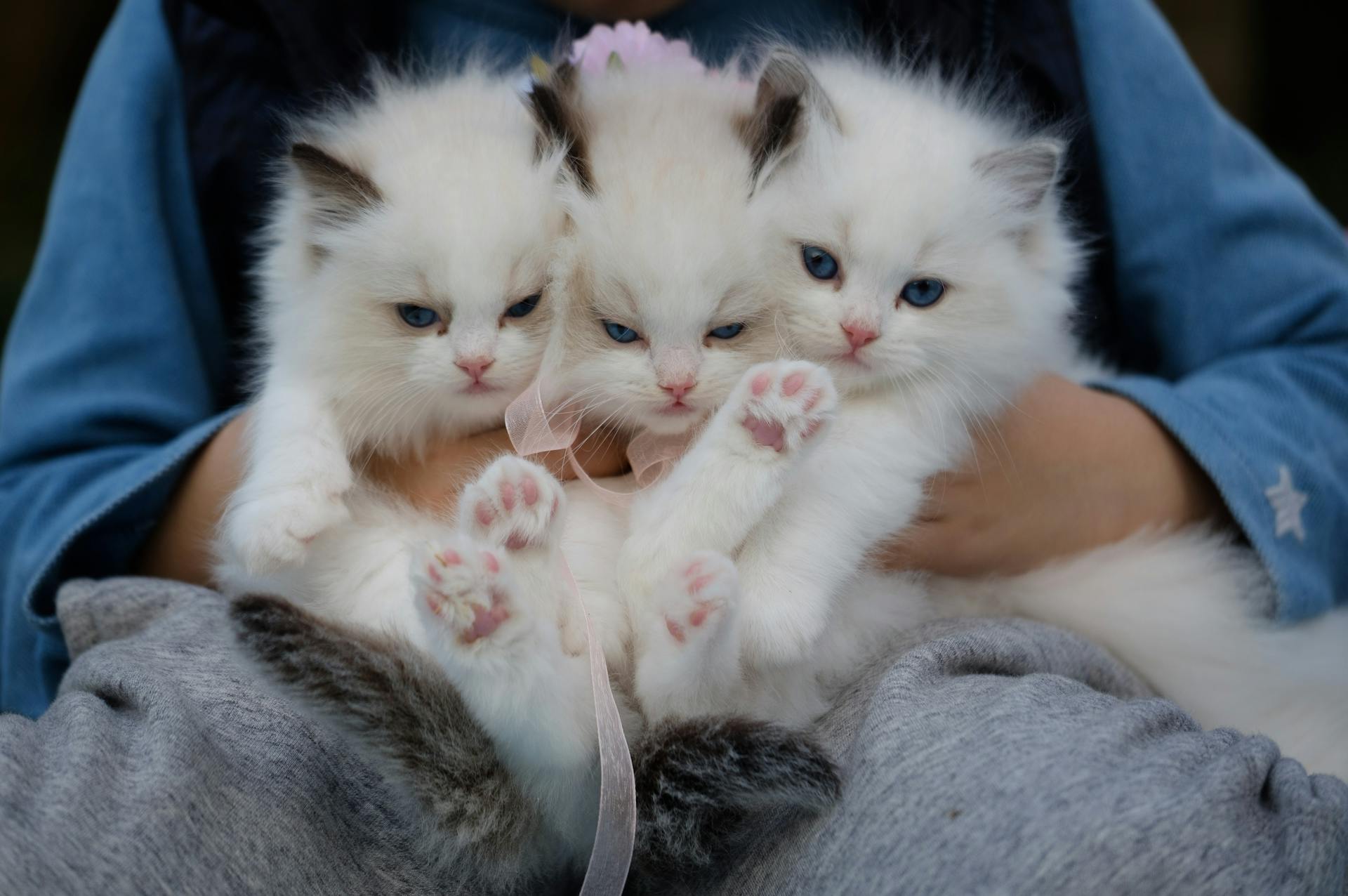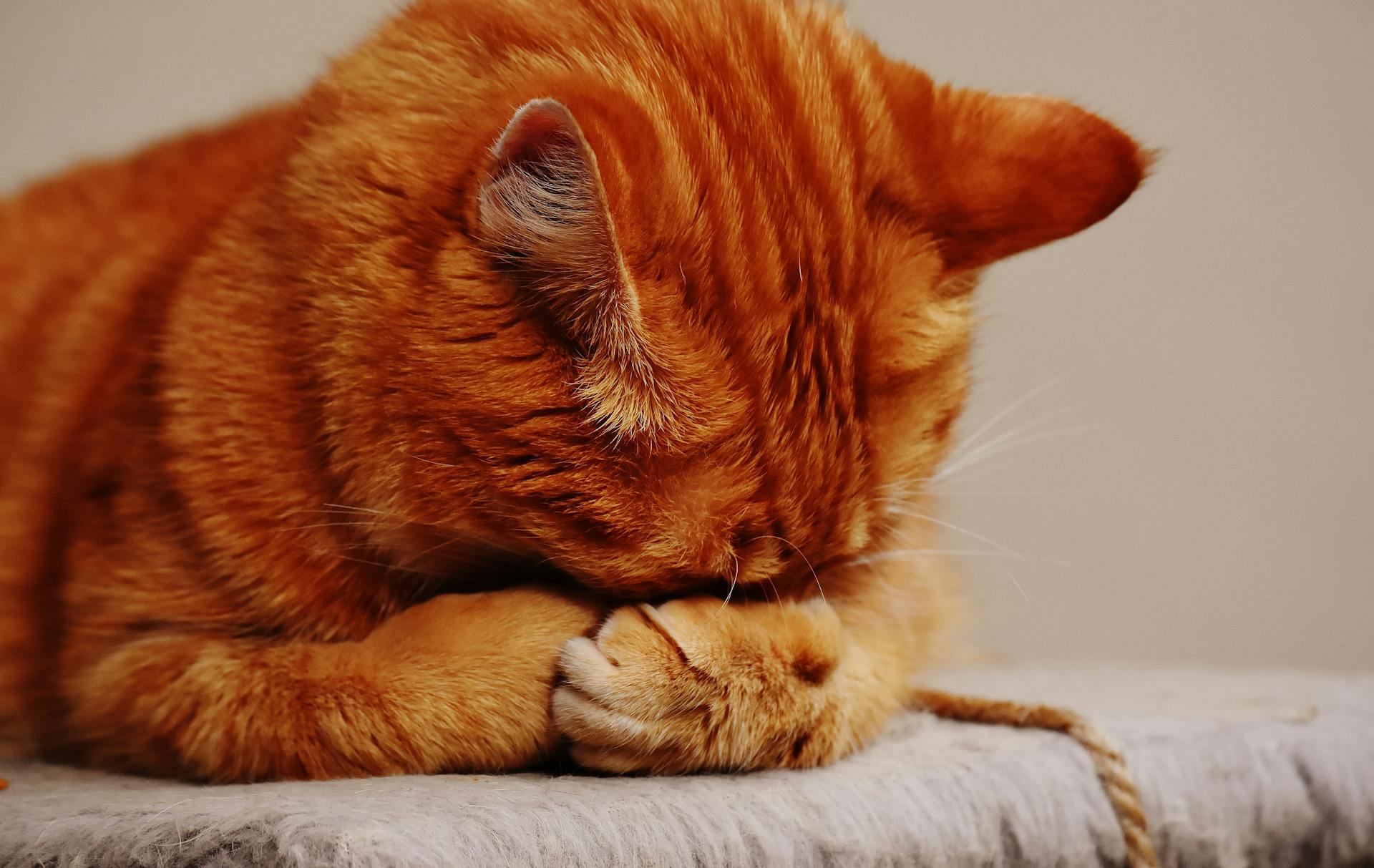
Serval cats are fascinating creatures that have captured the hearts of many people around the world. These long-legged African wild cats are known for their distinctive spotted fur and exotic appearance, making them a popular choice for those looking for an unusual pet. In this article, we will provide an overview of serval cats, including their breed history, characteristics, and care.
Despite their popularity as pets, serval cats are not recommended for everyone. They require specific care and attention to keep them healthy and happy. Diet consisting mainly of raw meat is essential to keep these cats healthy. Serval owners also need to provide large outdoor enclosures that can stay warm year-round to ensure that they have enough space to roam and play.
Before considering ownership of a serval cat, it is important to research local laws regarding exotic pets in your area. Many places require licenses and permits before owning one of these beautiful creatures. An exotic animal veterinarian should also be consulted regularly to ensure that your serval cat remains healthy and happy in its new home. With all this in mind, let's delve into the fascinating traits that make serval cats such unique animals!
Curious to learn more? Check out: Essential Foot Care for Horses
Discover the Fascinating Traits of Serval Cats
Serval cats are fascinating animals that have been gaining popularity as exotic pets in humans' homes. They are known for their extremely vocal nature, which can sometimes concern neighbors, including high-pitched cries and growls, spitting, and hisses.
One of the most noticeable traits of serval cats is their long legs, making them an agile jumper, allowing them to catch birds and find prey like ground squirrels. As a tall active hunter with a large size of up to 40 pounds, serval cats have a naturally wild temperament that can be challenging to train or domesticate fully.
Despite their aloof personality, serval cats can become emotionally attached to their owners and suffer deep distress when separated from them. These aspects make serval cats unique and fascinating creatures that require special care and attention if kept as pets.
Consider reading: Cats versus Dogs as Pets
Tips for Proper Care of Your Beloved Serval Cat
Serval cats require proper veterinary care from a reliable veterinarian who specializes in treating wild animals. General practice veterinarians may not have the necessary expertise to adequately care for these exotic creatures.
A large outdoor enclosure that is completely fenced and has at least six feet underground is essential for servals since they are solitary cats that can climb fences. A large circulating water fountain is also necessary to keep them hydrated and healthy.
Serval cats require a diverse diet that includes commercial cat food, live rodents, and even seafood. Live rodents should be released directly into the serval's enclosure while seafood should be offered in moderation due to its unique nutritional needs. By following these tips, responsible ownership finds their serval happy and healthy.
A fresh viewpoint: Tortoises Live
Serval versus Savannah Cat: Spotting the Differences

Serval cats and Savannah cats are often confused for one another due to their similar appearance. However, there are several key differences between the two exotic cat breeds. While servals are wild cats native to Africa, Savannah cats are a domesticated version of the serval that has been bred with a domestic cat.
Location plays a significant role in differentiating the two breeds. In the United States, first-generation F1 Savannah cats are regulated similarly to their serval parent and require special permits. However, in the United Kingdom, second-generation F2 Savannah cats are considered exotic pets and have fewer restrictions than their serval parents.
Another difference is in temperament. While both breeds can be friendly and outgoing like a typical domesticated cat, serval cats are known to be more independent and not as affectionate as their Savannah cat counterparts. In addition, Savannah cat parents must be carefully selected to ensure that they have a docile personality that will produce well-behaved offspring.
Recommended read: Savannah Breed Profile
The dangers of having a serval as a pet
The dangers of having a serval as a pet are significant safety risks. Servals are wild animals, and they have not been domesticated. They can be unpredictable and aggressive, which poses a severe risk to the owner and any small pets in the home expect.
If you are considering purchasing a serval, it is essential to understand that these cats are not like your typical house pet. Servals have an inherent need to climb, jump and run around. If you keep a serval inside your home, expect your sofa cushions destroyed, curtains pulled down, and personal items urine marked. Additionally, servals require outdoor enclosures with plenty of space to roam freely and satisfy their natural instincts. Avoid purchasing a serval as a pet unless you are prepared for the significant safety risks involved.
Readers also liked: Scout the Nursing Home Dog
Discovering the Enchanting World of Serval Cats
The Africa Serval Cat is a magnificent creature that can be found in its natural habitat across the African continent. These solitary predators are known for their sharp senses, agility, and the ability to cover a large territory on their own. It's no wonder why they have been featured in ancient art and historical records dating back to the early Egyptians.
In recent years, some individuals began breeding serval cats with domestic cats, resulting in a new breed called the Savannah cat. While this new hybrid breed may be gaining popularity among pet owners around the world, it's important to remember that serval cats are wild animals that require specialized care and attention. So if you're interested in discovering more about these enchanting creatures, make sure to do your research and approach them with respect and caution.
You might like: King Shepherd Dog Breed Profile
Discovering New Feline Varieties Through In-Depth Analysis

If you're interested in learning more about serval cats, then you should definitely check out similar breeds like the Bengal cat, Egyptian Mau, and Toyger cat. By reading cat breed profiles, it's easy to see the similarities and differences between these feline varieties. According to Driscoll Carlos in a Cat Scientific American 2009300668-75 article, serval cats are native to Africa and are known for their striking spots and long legs.
However, it's important to note that serval cats are not suitable as pets due to their wild nature. In fact, they are listed under the Captive Wildlife Safety Act - a law that prohibits big cat owners from keeping them as pets without proper permits. Instead, domesticated cats should be adopted from reputable shelters or breeders. Foreign bodies within your home could be harmful to your cat's well-being.
If you're interested in learning more about feline varieties like the serval cat, consider visiting Michigan Museum of Natural History or consulting with veterinarians at local veterinary centers before clicking "accept" on any pet adoption applications. By doing so, you can enhance site navigation and analyze site usage metrics while supporting marketing efforts for animal welfare organizations.
Where to Adopt or Buy a Serval Cat
If you are looking for a serval cat, there are several options available. First and foremost, it is important to note that servals are wild animals and require a skilled responsible owner. It is illegal to own a serval in some states, so it is important to research the laws in your area before considering ownership.
In the United States, serval ownership is legal in 16 states: North Carolina, Alabama, Nevada, Texas, Mississippi, Missouri, Oklahoma, Indiana, Pennsylvania, Rhode Island, Maine, Montana, Idaho, North Dakota and South Dakota. If you reside in one of these states and are considering ownership of a serval cat as a pet or companion animal rather than for conservation or breeding purposes; you can adopt from reputable sources such as sanctuaries or rescue organizations.
It is essential to obtain your serval from a reputable source such as the Feline Conservation Foundation who has been providing captive servals for over 35 years. They offer guidance and support for those interested in learning about owning and caring for these magnificent cats.
The Fascinating Connection of Behavior and Ecology
Serval cats are fascinating creatures that have a unique connection between their behavior and ecology. These nocturnal animals are most active in the early morning and at midnight, and they often walk on special trails to reach their hunting areas. On hot midday or rainy days, servals remain cautious in the grasses, where they can seek cover or close immediately flee if necessary.
Serval cats are solitary animals that show minimal social interaction except during mating season when long-lasting bonds appear between individuals of opposite sexes. Females establish home ranges of up to 32 square kilometers (12 square miles) depending on prey density availability and human interference. Size home ranges can overlap extensively, but occupants show minimal interaction unless aggressive encounters occur. Adult servals may meet for a ritualistic display, rival closely, but interaction rarely escalates beyond agonistic behavior involving vertical movement with the head contrary to horizontal movement observed in cats raising their tail displaying a white band while yowling individuals mark preferred paths by spraying urine or nearby vegetation dropping scats while releasing saliva servals tend towards sedentary shifting.
Serval cats are also known for their ability to escape predators such as African wild dogs by making long leaps and changing direction frequently with their tail raised high. They are frequent climbers, capable of reaching heights of up to nine meters (30 feet), where they seek refuge from danger. When threatened, servals emit a high-pitched chirp, hiss cackle growl grunt sound designed to scare off predators or alert other servals to potential danger. In conclusion, the fascinating connection between behavior and ecology is evident in serval cats' ability to survive in different environments by adapting their behavior accordingly.
Expand your knowledge: What Does a Cat Do When It Loses Its Tail?
1. Hunting and diet[edit]
Serval cats' diet includes a variety of preyed animals, from vlei rats and small birds to hares, frogs, and insects. To facilitate digestion, they eat the entire prey except for the fur or feathers. Serval locates their prey with a strong sense of smell and remains motionless for up to 15 minutes before slowly stalking the prey with their forefeet directed forward. With a success rate of 15 hunting attempts in a 24-hour period, servals are efficient hunters.
Discover the Fascinating World of Serval Cats
Serval cats are wild cats that roam the savannahs of Africa. They are known for their unique spotted coat and high energy levels, which they use to hunt small prey. These exotic cats can weigh up to 40 pounds and have a greater comfort level in climbing trees to escape predators.
Domesticated pet cats may share some similarities with servals, but they are vastly different animals. While domestic animals domestic cats may lounge around for long periods, servals have a constantly active lifestyle that requires plenty of space to roam. This is why they are not typically kept as pets and are gradually bred in captivity for conservation efforts rather than companionship. With their unique traits and wild animal instincts, servals remain one of the most fascinating species of wild cats in the world.
Introduction to the Fascinating Serval Cat Breed
Serval cats are some of the most fascinating animals in the world, and they make amazing pets for those who are looking for something different than your typical domesticated cat. Servals are wild animals, but they can be domesticated and kept as pets with proper care and attention. These large, active, independent felines are not for everyone, but for those who love them, servals can be truly amazing pets.
One of the good points about serval cats is that they are very unique compared to other pets cats. They have an unusual dietary requirement that includes raw meat and bone, which means that owners need to be prepared to provide them with a special diet. Additionally, these animals preferably require a large outdoor enclosure where they can run around and play since they have a lot of energy.
Overall, the benefits of owning a serval arguably outweigh any potential drawbacks. While it's true that these animals require more work than your average housecat, they also offer much more in terms of companionship and entertainment. If you're interested in learning more about this fascinating breed of cat or considering adding one to your family, then there's no time like the present!
Broaden your view: How Many Kittens Can a Cat Have at One Time?
Frequently Asked Questions
Can a serval be kept as a pet?
No, servals are wild animals and not suitable as pets. Keeping them as pets is illegal in many countries and can be dangerous for both the animal and the owner.
Is a serval cat dangerous as a pet?
Yes, serval cats can be dangerous as pets due to their wild instincts and potential for aggression. It is also illegal to own them in some states/countries.
Are cats good as pet?
Yes, cats make great pets for many people. They are independent, low-maintenance, and affectionate companions that can bring joy and companionship to your life.
Are cats more popular than dogs as pets?
While both cats and dogs are popular pets, it is difficult to determine which is more popular as it varies based on geographical location, lifestyle, and personal preferences of pet owners.
Featured Images: pexels.com


